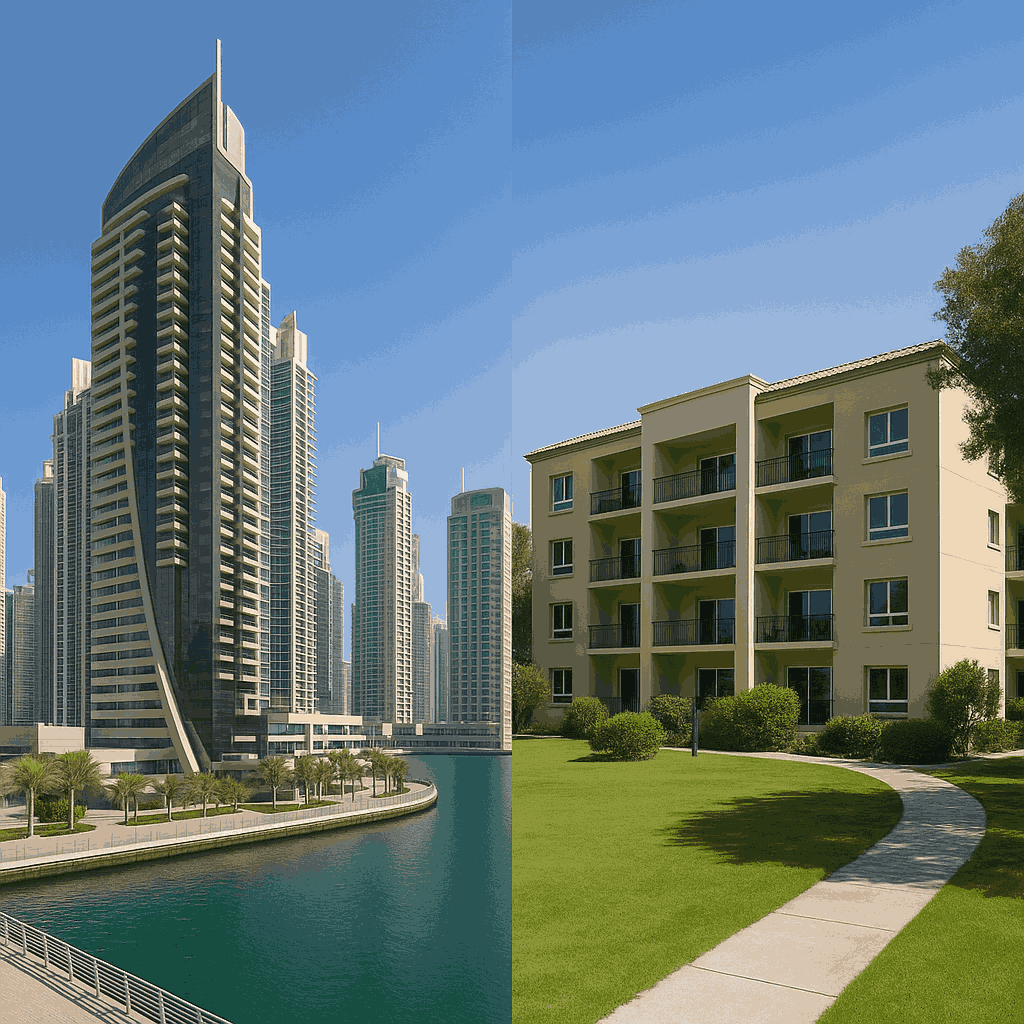
Key Takeaways
-
Freehold ownership allows expats to own property outright in designated zones
-
Leasehold grants long-term usage rights (usually 10–99 years) but not land ownership
-
Dubai and Abu Dhabi both have specific zones open to foreign freehold ownership
-
Knowing the difference is critical for investment, resale value, and inheritance planning
-
Service charges, legal rights, and resale procedures differ between the two
What You Need to Know
The UAE real estate market offers two main types of property ownership: freehold and leasehold. While both models are legally protected and well-regulated, they carry different implications for buyers—especially expatriates looking to live or invest in the country. Whether you're a first-time buyer or considering long-term investment, understanding the distinction between freehold and leasehold is essential for making the right decision.
What Is Freehold Ownership?
Freehold ownership means you legally own the property and the land it stands on, indefinitely. This ownership can be passed on to heirs, rented out, or sold at the owner's discretion.
-
Available to foreign nationals in designated freehold zones
-
Includes full rights to sell, lease, or renovate (within legal limits)
-
Ownership is registered with the emirate’s land department (e.g., DLD in Dubai)
Popular Freehold Zones
Dubai:
Abu Dhabi:
-
Yas Island
-
Al Reem Island
-
Saadiyat Island
-
Al Raha Beach
-
Masdar City
What Is Leasehold Ownership?
Leasehold gives you the right to occupy and use a property for a set number of years—usually between 10 and 99 years—but you do not own the land it stands on. Ownership reverts to the landholder at the end of the lease term unless extended.
-
Typically involves paying annual rent or an upfront premium for long-term rights
-
Alterations to the property may require approval from the landowner
-
Ideal for those seeking affordability or limited-term use
Common Leasehold Areas in Dubai
Key Differences
| Aspect |
Freehold |
Leasehold |
| Duration |
Permanent |
Fixed term (10–99 years) |
| Ownership Rights |
Full ownership of land and property |
Right to use property, not the land |
| Inheritance |
Transferable to heirs |
May require renegotiation or special clauses |
| Modifications |
Allowed with approvals |
Often restricted by lease terms |
| Investment Potential |
Generally higher resale and capital gain |
Lower capital appreciation |
Legal Protection and Registration
Both types of ownership are formally registered with the relevant authorities:
-
Dubai Land Department (DLD) for properties in Dubai
-
Abu Dhabi Department of Municipalities and Transport (DMT) in Abu Dhabi
-
All ownership types are backed by legal contracts and regulated under UAE property law
Service Charges and Fees
Regardless of ownership type, buyers are responsible for service charges. However, leasehold properties may involve additional annual lease payments depending on the agreement.
Resale and Exit Strategy
-
Freehold properties are generally easier to resell and attract more buyers, particularly in investor-heavy areas
-
Leasehold units may depreciate faster as the lease term shortens, which can affect resale value and buyer interest
Inheritance and Long-Term Planning
For expat buyers, freehold properties offer more straightforward inheritance options. Leasehold properties may require renegotiation or legal consultation to ensure continuity.
Final Thought
Choosing between freehold and leasehold depends on your financial goals, duration of stay, and risk tolerance. Freehold offers long-term benefits and flexibility, while leasehold may be suitable for those with shorter-term horizons or tighter budgets. Always review the terms of ownership and consult a licensed real estate advisor before making a commitment.
Stay informed on the latest news and insights across the UAE —
Subscribe to our newsletter and explore more at fäm Properties.